Meet the team
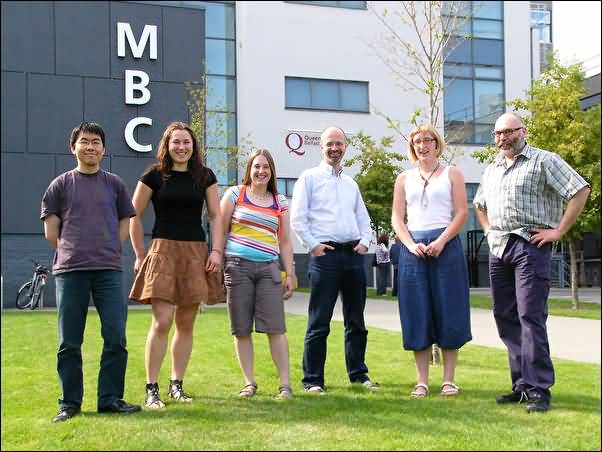
Theoretical Ecology team at QUB, as it was in 2010: from left to right
- Dr Tak Fung (PhD graduated 2013), Dr Olga Lyashevska (PhD graduated
2011), Dr Jennifer Houle (PhD graduated 2013), Dr Axel
Rossberg (was Senior Research Fellow), Dr Deirdre Duggan (PhD graduated
2014) and Dr Keith Farnsworth (team leader). - note to self: must take a new picture this
year. The team is developing a theoretical understanding for applied science, mainly in fisheries management ecology and biodiversity conservation. In 2017 Dr Alexander Sadykov joined us as a Senior Research Fellow in theoretical ecology for fisheries science. He is developing a new mathematical basis for Maximum Sustainable Yield fisheries targets. Later that year, Dr Audric Vigier joined in as a fisheries scientist / computation modeller to continue building a large complex-system model of fisheries management using the Real Time Incentive system devised by Prof Dave Reid and Dr Sarah Kraak).
In 2016 Dr Hannes Höffle joined us to work on a radically new kind of fisheries management (see below). Between 2012 and 2016 we had Senior Research Fellow Dr Francisco De Castro and Research Fellow Dr Sam Shephard (see below for both) working on other aspects of fisheries management. Francisco still works in QUB (now studying soil foodwebs) and Sam is a science leader for Inland Fisheries Ireland. Tak is a research scientist at the National University of Singapore, Jen is an insurance actuary, Deirdre is working with fisheries sustainability on Bali and Olga, having completed a post-doc stint with the Royal Netherlands Institute for Sea Research, is now post-doc researching (using biostatistics) at Galway Mayo Institute of Technology. Axel is now a Reader in Aquatic Biology at Queen Mary College, London University.
If you would like to join in, please identify a source of funding and drop us a line.
Present Team Members
Dr. Alexander Sadykov
Alex is a Russian Mathematician, principally interested in dynamic system models of biological phenomena, currently employed to develop a more precise and useful theory of fluctuating exploited fish stocks and how they respond to fishing and its regulation.
Rehab
Rehab is a PhD student from Egypt who is developing management strategies for Red Sea artisinal fisheries.
Previous Team
Members:
Dr. Audric Vigier
Audric is a French FIsheries Scientist with considerable computational expertise, who is currently working on the large dynamic complex system simulation of mixed fish populations, fisheries and their management for evaluating the proposed Real Time Incentive Scheme. Essentially, Audric has taken over where Hannes (below) left off.
Sarah Campbell
Sarah is a PhD student working on advanced multi-dimensional (and global) sensitivity analysis to help us thoroughly examine the range of possible outcomes from our dynamic complex system models.
Dr. Hannes Höffle
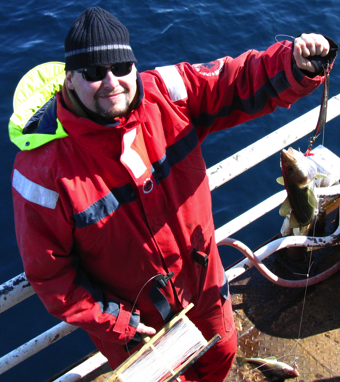
Hannes says:
My research interests broadly cover three areas. Firstly, I am interested in the spatial distribution of marine organism and what factors are limiting the range of species or communities. Secondly, I am interested in the effects of disturbances, whether natural or anthropogenic, on biota, ranging in scale from individual populations up to entire ecosystems. Thirdly, on a more theoretical side, I am interested in the evaluation of uncertainty of survey results as well as model predictions. As it touches all three of these interests, I have worked in fisheries ecology since 2008, mostly working on spatial distributions of early life stages and how they are affected by environmental conditions.
Current Research
As part of the project "Creating the knowledge for precision fisheries management" I am responsible for the creation of an operating model, representing the Celtic Sea fishery and it’s interactions with the marine environment. Pulling together components from a range of existing fish community and fisheries models, the operating system shall strike a balance between capturing the processes of interactions in the community, and ease of parameterization as well as stakeholder acceptance. The model shall serve as a basis for a management strategy evaluation (MSE) of a real time incentive (RTI) management system. The RTI is a modern 'nudge' policy, which provides fishermen with an annual contingent of credits and a, periodically updated, map showing how much credits it costs to fish in a given area. It allows fishermen to fish, where and when they want until they run out of credits, thus devolving responsibility to the industry. MSE is a quantitative approach of evaluating harvest control rules, initially developed for the International Whaling Commission (IWC 1993). Essentially, it is a statistical modeling exercise, simulating management scenarios and evaluating the extent to which a management strategy is affected by uncertainty from various sources of error.
Past Research
My first research project, addressed the influence of introduced species on growth and survival of sea grasses in the Baltic Sea and the western Indian Ocean. The study came to the main conclusion that effects of algal mats largely depend on the morphological structure of the algae and their longevity (Höffle et al. 2011, Höffle et al. 2012).
In fisheries ecology I mostly worked on early, planktonic, life stages of demersal fish, which play a major role in establishing year-class strength. These studies, on populations in the North and Barents Seas, led to three main conclusions (Höffle 2012, Höffle et al. 2014). Firstly, that, regardless of the stock and its demographic structure, some environmental variables will have a consistent influence on the spawning distribution. Secondly, that on large temporal and spatial scales, even for fish which do not depend on a certain substrate, spawning grounds are in recurrent locations, while centers of abundance vary between the years. Thirdly, that the importance of environmental factors controlling the population may vary between life stages (Höffle & Kjesbu 2014).
References
Höffle H (2012) Spatial patterns in the distribution and early life characteristics of North Sea cod - influence from environmental factors and climate change, Ph.D. thesis, Technical University of Denmark, Kongens Lyngby, DK.
Höffle H and Kjesbu OS (2014) Some like it cold - consequence of warming seas for the distribution of large bodied fish, oral presentation, ICES ASC 2014, A Corua, ES
Höffle H, Thomsen MS, Holmer M (2011) High mortality of Zostera marina under high temperature regimes but minor effects of the invasive macroalgae Gracilaria vermiculophylla. Estuarine Coastal and Shelf Science 92:35-46
Höffle H, Solemdal P, Korsbrekke K, Johannessen M, Bakkeplass K, Kjesbu OS (2014) Variability of northeast arctic cod (Gadus morhua) distribution on the main spawning grounds in relation to biophysical factors. ICES J Mar Sci 71:1317-1331
Höffle H, Wernberg T, Thomsen MS, Holmer M (2012) Drift algae, an invasive snail and elevated temperature reduce ecological performance of a warm-temperate seagrass, through additive effects. Mar Ecol Prog Ser 450:67-U85
International Whaling Commission (1993) Report of the scientific committee, annex I. report of the working group on implementation trials. Rep.Int.Whal.Commn 43:153-196.
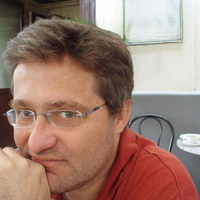
Dr Francisco de Castro
Ph. D. Ecology. 1993. University of Seville. Spain. Thesis: Simulation model of plant structure.
PROFESSIONAL CERTIFICATIONS &
ASSOCIATIONS
Member of the International Society of
Ecological Modeling (ISEM)
Ecological Society of America (ESA) Member: 110042
Certified Senior Ecologist by the Ecological Society
of America (2002 – 2007)
Francisco joined us in 2012 from Potzdam
University.
Here is what he says: "I am mainly a theoretical ecologist/modeler.
Currently, I am working on spatial aspects of food web dynamics. Also
on how individual body size, metabolism and efficiency in energy
transfer affects community structure. Previously I worked on
host-parasite dynamics and its effects on the community and a variety
of other subjects: dune movement, tree shape, canopy structure, etc.
always trying to extrapolate interactions at small scale to the
dynamics of the large-scale system". Francisco worked as a Senior
Research Fellow on the
Beaufort Marine Award, helping to expand our models and
theories into spatial domains. He is still working at Queen's
University Belfast, now on soil foodweb structure.
A few of his publications:
Riede, J. O., Brose, U., de Castro,
F., Rall, B. C., Binzer,
A., Curtsdotter, A., Eklo¨f, A. 2011. Food web
characteristics and robustness to secondary extinctions. Basic &
Applied Ecology 12(7): 1-9.
de Castro, F., Gaedke, U., Boenigk, J. 2009. Reverse evolution: Driving
forces behind the loss of acquired
photosynthetic traits. PloS ONE 4(12):1-6.
de Castro, F., Gaedke, U. 2008. The
metabolism of lake plankton does
not support the Metabolic Theory of
Ecology. Oikos 117(8): 1218-1226.
de Castro, F., Bolker, B. M. 2005.
Mechanisms of disease-induced
extinction. Ecology Letters 8(1):117-
126.
de Castro, F., Bolker, B. M.
2005. Parasite establishment and host
extinction in model communities. Oikos
111: 501 -513

Dr Jennifer Houle - Research Fellow (size-spectrum marine
community models)
Education
BA (2006) Mathematics, University of Maine; MSc (2007) Music Technology, University of Limerick
PhD (2009-2013) QUB: "Structure and dynamics of marine-community interaction networks"
Funded by a Beaufort Marine Research Award from the Republic of Ireland.
Summary
My research aims to support the ecosystems approach to fisheries management by studying how fishing affects marine ecological communities. I am examining this using dynamic numerical models of the marine ecosystem which consist of a network of size-structured populations connected by community interactions. I am jointly supervised by Dr. Axel Rossberg and Dr David Reid of the Irish Marine Institute.
Research Interests:
- Mathematical ecology
- Physiologically structured population models
- Ecosystem-based fisheries modelling
Dr Tak Fung
Tak completed his PhD with us in 2013 EducationBSc Mathematics with Management, First Class Hons. (2003), Imperial College London; PhD modelling biological complexity, University College London (2009). Previous work involved applying mathematics to a range of biological areas, such as visual perception, population genetics and the dynamics of coral reef ecosystems.
Summary
PhD Queen’s University
My PhD focused on using mathematical techniques to investigate the mechanisms behind key ecosystem phenomena such as biodiversity and stability. These include complex systems theory, network theory and size-structured community theory. New insights were gained that can be translated into effective biodiversity policy for fisheries operating around the Irish coast and generalised for the Ecosystem Approach to Fisheries Management. My PhD was funded by the Irish Government under the Beaufort Marine Award Scheme and jointly supervised in conjunction with Dr Axel Rossberg and Dr David Reid of the Irish Marine Institute.
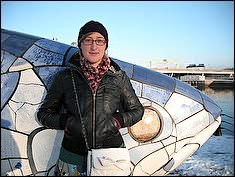
Dr Deirdre Duggan
Deirdre completed her PhD with us in 2014. She now works for Masyarakat dan Perikanan, Indonesia (MDPI) in fisheries management development and sustainability in Bali, Indonesia .
Education
BSc (2004-2008): Marine Science,
National University
of
Ireland, Galway.
MSc (2009-2010): Applied Marine Science, University of Plymouth,
United Kingdom.
PhD (2010-present): "Modelling the Ecosystem Approach to
Fisheries Management"
PhD Summary
Fisheries management is moving from maximising the sustainable yield of a single stock towards a community perspective. This ecosystem approach requires far more complex models of multi-species interactions and community structure than previously encountered by fisheries managers and other stakeholders. My PhD aims to bridge the gaps between scientists and fishermen caused by this expansion of complexity. I am investigating and selecting appropriate indicators of community health which can summarise ecological complexity in a 'dash-board' describing the system's state to managers. I am incorporating size-structured multi-species models into fisheries simulation tools to enable rapid scenario exploration and conceptual learning. I work in close collaboration with fisheries management professionals at the Irish Marine Institute to ensure the practical applicability of the decision support tools that I am building. The ultimate aim of my work is to enable fishers to take greater responsibility for the sustainability of the resources they exploit by providing accurate, comprehensive and understandable information on the behaviour of the marine community under fishing.
Here are two relevant publications from the work:
D.E. Duggan, K.D. Farnsworth, S.B.M. Kraak, D.G. Reid. (2015). Integration of indicator alarm signals for ecosystem-based fishery management. Conservation Letters. (on line).
Duggan, D.E., Farnsworth, K.D., Kraak, S.B.M. (2013). Identifying functional stakeholder clusters to maximise communication for the ecosystem approach to fisheries management. Marine Policy. 42: 56-67. (on line).

Samuel Shephard
Education
PhD Fisheries Ecology, Department of Wildlife and Fisheries,
Mississippi State
University, U.S.A. 2003.
MSc Fisheries Management, Development and Conservation, University
College Cork, Ireland. 2000.
BSc Environmental Science, University of Westminster, London, UK. 1994.
Sam in his own words:
I first became involved in fishing as a commercial deckhand, which
introduced me to the fascinating and troubling complexity of fisheries
systems. My current research is in the development of flexible
indicators for the Ecosystem Approach to Fisheries Management,
especially in the context of the Marine Strategy Framework Directive.
This work comprises empirical modelling and collaboration with
mathematical modellers, and includes connections with ICES WGECO and
STECF. A related focus is analytical and sea-going experimental work on
the ecosystem effects of fishing. In particular, bottom-up trophic
effects on demersal fishes caused by trawling-induced change in benthic
communities. Using high-resolution Vessel Monitoring System (VMS) data,
I am currently extending these analyses to incorporate the real spatial
scale of fisheries / fish community interactions and the application of
MPAs.
I have recently joined the FP7 project MYFISH , where
I will be working on Irish Sea elasmobranch and western waters pelagic
fisheries case studies.
Dr Axel Rossberg
Axel,
was
the
Beaufort Senior Research Fellow here during 2008-2011. He moved on to
work as a Senior Scientist at the CEFAS (English marine biology /
fisheries institute) before taking a prestigious position as Reader in
Aquatic Biology at Queen Mary College, University of London.
Fung, T. Farnsworth, K.D. Reid, D.G., Rossberg A.G. (2015). Impact of biodiversity loss on production in complex marine food webs mitigated by prey-release. Nature Comms. 6. 10.1038/ncomms7657
He
is also author of the book:
Rossberg, A. G. (2013). Food Webs and Biodiversity: Foundations, Models, Data.
Wiley. ISBN 9-780470973-55-4
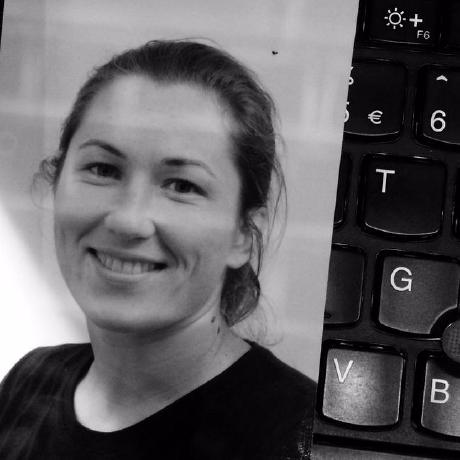 Olga
completed her PhD at Queen's University Belfast in 2011. With it she
showed that biodiversity was essentially a three-dimensional property
of ecological systems (and samples of them). Using worked examples
derived from large marine ecosystem databases, Olga demonstrated that
all the popular measures of biodiversity could be reduced to the three
major axes: phylogenetic relationships, ecological functions and
community structure. The work provided the basis for an empirically
based definition of what biodiveristy is. This definition is compatible
with the axiom-based definition: that biodiversity is a quantitative
summary of the total difference among biological systems (usually
organisms), which in turn matches the definition of information based
on Floridi's concept of well formed data. These definitions apply
equally well at any ontological level of description.
Olga
completed her PhD at Queen's University Belfast in 2011. With it she
showed that biodiversity was essentially a three-dimensional property
of ecological systems (and samples of them). Using worked examples
derived from large marine ecosystem databases, Olga demonstrated that
all the popular measures of biodiversity could be reduced to the three
major axes: phylogenetic relationships, ecological functions and
community structure. The work provided the basis for an empirically
based definition of what biodiveristy is. This definition is compatible
with the axiom-based definition: that biodiversity is a quantitative
summary of the total difference among biological systems (usually
organisms), which in turn matches the definition of information based
on Floridi's concept of well formed data. These definitions apply
equally well at any ontological level of description. She is now working at GMIT, Ireland as a Quantitative Ecologist (see below)
2015 - present Postdoc Quanitative Ecology, MFRC, GMIT, Ierland
2012 - 2015 Postdoc Ecological Statistics, NIOZ, The Netherlands
2007 - 2011 PhD Ecology, Queens University Belfast, UK
2005 - 2007 MSc Environmental Sciences, Wageningen University, The Netherlands
Publications
H.Acampora, I.O'Connor,
O.Lyashevska. The use of beached bird surveys for marine litter
monitoring in Ireland. In preparation.
O.Lyashevska, C.Harma, D.Brophy,
C.Minto, M.Clarke. Identifying drivers of change in size of Atlantic
herring populations using gradient boosting regression trees. In
preparation.
O.Lyashevska, D.Brus and J.van der
Meer. Grid-spacing and the quality of
abundance maps for species that show
spatial autocorrelation and zero-inflation. Submitted to Spatial
Statistics (Impact Factor 1.605)
O.Lyashevska, D.Brus and J.van der
Meer. Mapping species abundance by a
spatial zero- inflated Poisson
model: a case study in the Wadden Sea, The Netherlands (2016). Ecology
and Evolution (Impact Factor: 2.32), 6(2): 532–543
O.Lyashevska and K.D.Farnsworth. How
many dimensions of biodiversity do
we need? (2012). Ecological
Indicators (Impact factor: 3.44), 18:485–492
K.D.Farnsworth, O.Lyashevska, and
T.Fung. Functional complexity: the
source of value in biodiversity?
(2012). Ecological Complexity (Impact factor: 1.931) 11:46–52